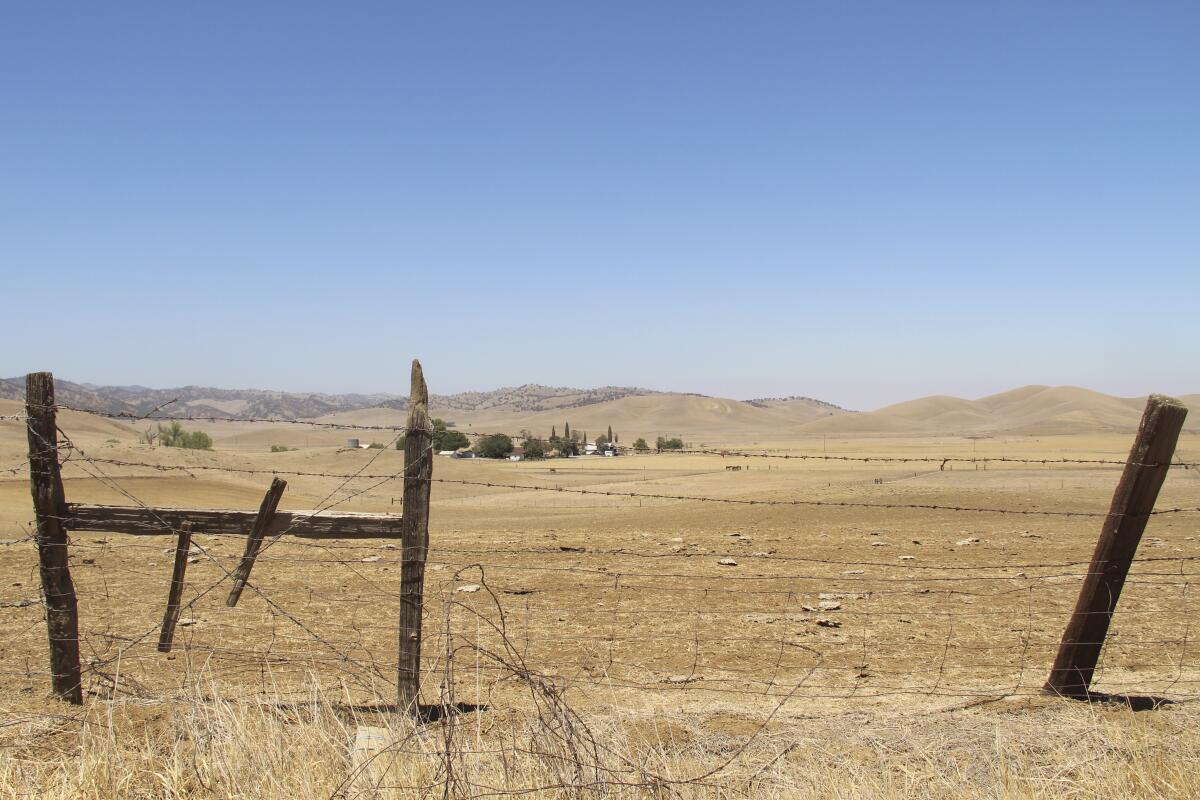Amid drought, California regulators advance major new reservoir project

- Share via
SACRAMENTO — Amid a severe drought, California regulators on Wednesday voted to advance what could be the state’s first major new water storage project in decades, despite warnings from tribal and environmental groups that it would hasten the extinction of multiple species of salmon.
The vote by the California Water Commission ensured that the Sites Reservoir project will remain eligible for about $800 million in taxpayer money, representing about 20% of the project’s roughly $4-billion price tag.
The reservoir is one of seven water storage projects scheduled to receive funding from a voter-approved bond in 2014.
Most of the money would go to expanding existing reservoirs or building water recycling programs. But the Sites Reservoir is different because it would create a new lake by flooding a valley in Northern California’s coast range mountains. Supporters estimate it would be enough to supply 3 million households per year when filled to capacity.
California has not built a major new reservoir since 1979. Since then, multiple droughts have strained the state’s water supply and renewed calls for more ways to capture and store water from the state’s major rivers and streams.
“The Sites Reservoir project is not going to solve all of our problems,” said Jerry Brown, executive director of the Sites Reservoir Authority, who is not related to the former California governor with the same name. “If we do absolutely nothing, I can guarantee you things will get worse.”
The California Water Commission on Wednesday said the project is feasible, meaning it has met all of the requirements to remain eligible for public funding. There are still many steps ahead for the project to receive the public funding, but approval by the Water Commission before the end of the year was required for the project to maintain its eligibility.
Environmental and tribal groups complained that the Water Commission acted prematurely in saying the project was feasible, especially since environmental reviews required by state and federal law have not been completed.
Most of California’s major reservoirs are connected to rivers and rely on gravity to fill them with water that comes from snowmelt in the mountains. The Sites Reservoir would have water pumped to it from the nearby Sacramento River.
The idea behind the reservoir is to take water from the river only when it has extra water to give, such as during large storms like one last October that set a single-day Sacramento rainfall record. Environmental groups say that doesn’t make sense because all water in the rivers has a significant purpose.
“There is no such thing as excess water in the environment,” said Steve Evans, rivers director for the California Wilderness Coalition. “That water is needed for fisheries and water quality in downstream ecosystems, and every time you take it out of the system you are having an environmental impact.”
More to Read
Sign up for Essential California
The most important California stories and recommendations in your inbox every morning.
You may occasionally receive promotional content from the Los Angeles Times.













